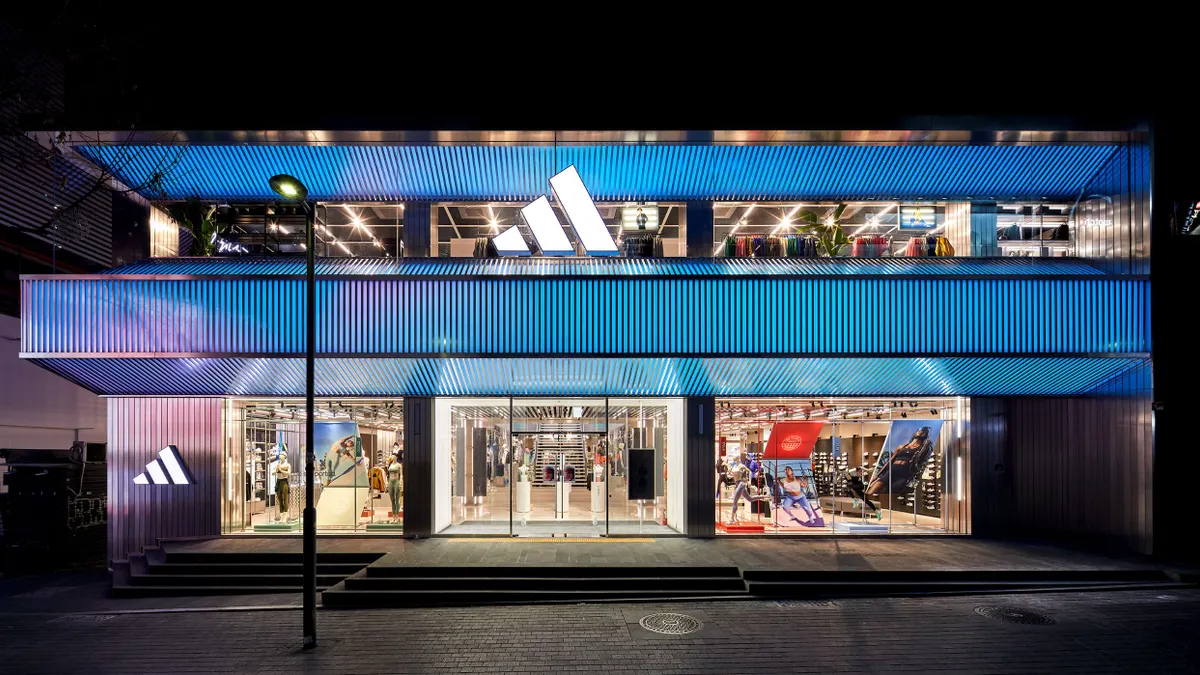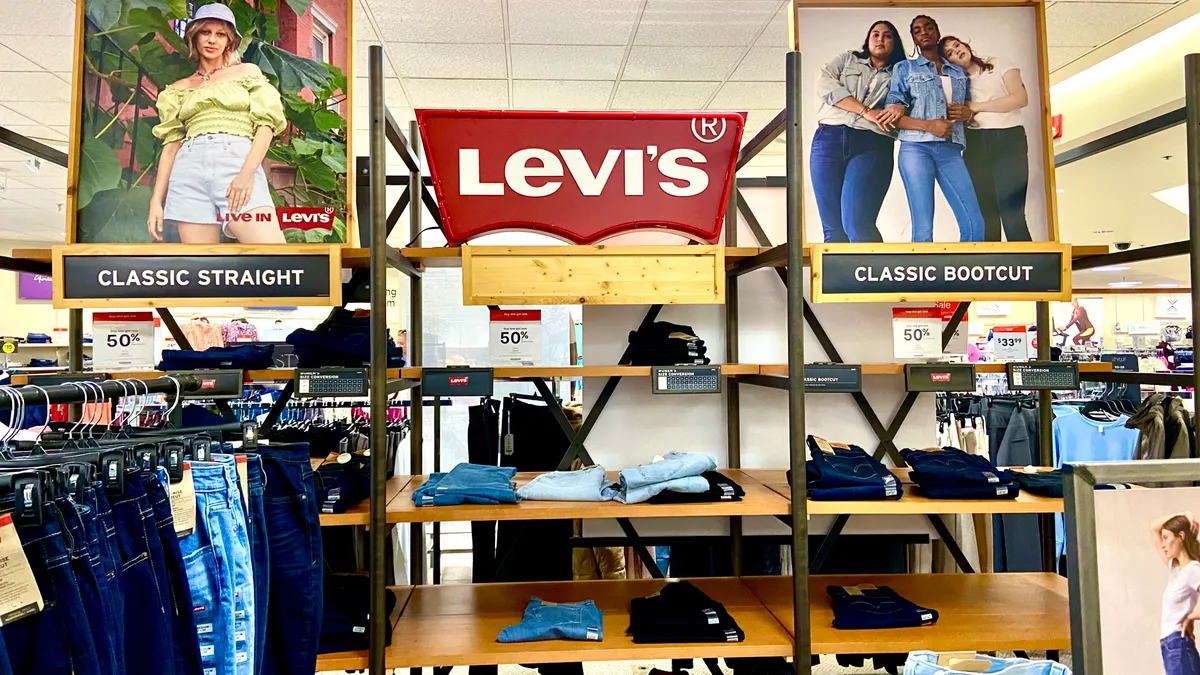Retailing has been plenty difficult for the past several years. Of the dozens of retailers to file for bankruptcy since 2016, many if not most of them described in court papers a landscape that suddenly shifted. Consumers changed their habits, and traffic to stores fell just as suddenly and confoundingly.
Those trials might ultimately seem quaint compared to the massive disruption the spread of COVID-19, and the measures taken to slow it, are bringing to the industry.
Retailers face so much financial uncertainty from the current selling environment that some, including Michaels and The Children's Place, are declining to provide investors estimates for their performance this year. Already by the second week of March, U.S. retail traffic was down more than 30% year over year, according to data from Cowen.
And once the pandemic is brought under control and consumers feel safe to shop again, it is looking ever more likely that the country is entering a recession that could further reduce spending.
For retailers on the edge, who were already struggling with sales declines and high debt loads, the uncertainty and financial pain is that much deeper. They already had little room for error and unforeseen pain. And now they face a triple blow, with sales falling — possibly precipitously — credit markets drying up and consumers potentially holding off on discretionary spending as they brace for the economic fallout.
"As the secular headwinds retail is facing accelerate, this could be the nail in the coffin of some of these brick-and-mortar retailers," Sarah Wyeth, sector lead for S&P Global's retail and restaurant coverage, told Retail Dive in an interview.
'This is unprecedented'
While closures and emphasis on social distancing could hurt distressed retailers most immediately, Wyeth said her team was looking at the entire universe of the retail and restaurant companies they cover to determine how they will be affected. Experts are rapidly trying to understand the impact, but doing so is all the more difficult given how uncertain and quickly changing the situation is.
"The most pressing risk issuers are trying to ascertain at this point is the implications of social distancing," she said. "Increasingly that risk seems to be rising from one day to the next. We're struggling to to come up with a baseline forecast [for] what the impact is going to be. We can confidently say it's going to have a negative impact across our portfolio."
"There is no sense of how this is going to shape up, because this is unprecedented," Reshmi Basu, restructuring editor with Debtwire, said in an interview. "Retail was already compromised before this year."
"This is unchartered territory," Joseph Malfitano, managing member of disposition advisory firm Malfitano Partners, added in an email to Retail Dive. "Overall, retailers are seeing significant store traffic declines since the start of the daily news coverage and emphasis on 'social distancing.' As the virus spreads, more and more municipalities, states and mall/center operators are placing restrictions on what can be open and for how long."
Some of the biggest challenges facing highly leveraged retailers, especially those with debt maturities looming, are liquidity and the debt markets.
"On the retail side, one thing we're seeing is quite a few retail companies have been starting to ask for rent concessions. And that's just going to grow exponentially," Basu said. "Everyone wants to preserve liquidity."
As for retailers' struggles with their debt, Basu said, "it's really going to be impacted by how the banks handle this."
Banks have to manage their risk as fears of a recession and loan losses mount. As Basu points out, many banks are holding energy loans along with retail, with large distress levels in both industries, and it's an open question whether private lenders like hedge funds will fill in the gaps if banks shy away from providing capital.
Companies Basu is following closely as retail comes under more stress include Neiman Marcus, J.C. Penney, Macy's, Claire's, David's Bridal, Michaels, Party City and Joann.
But many others, to an extent, face risk of restructuring or default. Retailers with a CCC+ or lower rating from S&P include Belk, 99 Cents Only, Petco, Guitar Center, GNC, Rite Aid, J.C. Penney, J. Jill, J. Crew, Neiman Marcus, Ascena Retail Group and a corporate entity tied to Academy Sports + Outdoor.
As of Wednesday, S&P took ratings actions on seven North American retail and restaurant companies specifically over coronavirus-related issues. Among them was a downgrade of Big Lots.
One measure of bankruptcy risk specifically is CreditRiskMonitor's FRISK score, a proprietary metric that aims to measure the probability of a public company filing for bankruptcy within 12 months. According to data provided by the company, seven retailers have been downgraded to FRISK scores of 1 or 2 between March 1 and March 16, indicating elevated levels of bankruptcy risk. They are: Destination XL Group, Overstock.com, Wayfair, Lands' End, Christopher & Banks, Francesca's and The Container Store.
"How generous are lenders going to be in this environment?"

Sarah Wyeth
Sector lead for S&P Global's retail and restaurant coverage
Since March 16, others were downgraded as well, including Party City (to a FRISK score of 1) and airport specialist Hudson Ltd (score of 2).
Brian Sanders, senior research analyst with CreditRiskMonitor, told Retail Dive in an email that the downgrades are likely a result of stock market volatility, which is one component of FRISK scores. He also said that current retail scores "are broadly equivalent to levels last observed in the 2008 Great Recession or worse, depending on the industry."
But the risk doesn't stop with distressed retailers or highly leveraged retailers. There is another class of retailers with higher credit ratings and better financials, but that even before the coronavirus outbreak were trying to stem falling sales, profits or both.
"I think downgrades are a reasonable expectation up and down the scale at this point, but those at the weaker end are more likely to deteriorate faster," Wyeth said.
'Closing stores is not possible'
As for those retailers most at risk, it's still far from clear what happens to them. Wyeth said retailers that need to refinance their debt are most at risk as credit markets freeze up amid broader economic and financial concerns.
"How generous are lenders going to be in this environment?" she said. "It doesn't bode well for anyone who needs to go back to their lenders and ask for anything at this point."
For retailers facing liquidity shortages and default risk, bankruptcy is not the option it was a month ago. Going-out-of-business sales are an integral part of the retail bankruptcy. They allow retailers to quickly downsize their footprint to meet lower sales, and provide a relatively orderly way for a retailer to wind down in a court-supervised process. In both cases, proceeds from liquidation sales help pay back creditors, starting with secured lenders.
But if shoppers won't leave their houses to shop even the steep discounts of a liquidation sale, that changes the calculus entirely.
"In this unique time where closing stores is not possible (because of shutdowns) or advisable (based on the unpredictability of the sale), a company should think twice about the benefits of filing Chapter 11," Malfitano said. "There will certainly be an immediate need for some significant restructuring to stabilize business operations/expenses pending a market turnaround, but much of this work can be accomplished out-of-court with the right team."
And with many retail loans secured by their inventory, asset-based lenders might be more hesitant to pull the plug on a retailer and force them into liquidation or bankruptcy, given that the loan recovery could be degraded in the current selling environment. And that could be painful for retail lenders, but needed in the short term.
"A delay in liquidating stores/inventory does not come without a cost, but this cost is necessary to preserve the value of the inventory," Malfitano said.
'The pressure is absolutely on'
Looming over the immediate pain is the uncertainty of what comes next. Beyond the sales losses caused by the virus and the interventions to mitigate it is the threat of a recession caused by the slowdown of economic activity.
"Consumer confidence is going to come down," Wyeth said. "People are going to be worried about their jobs and their future income."
Economists with S&P on Tuesday said in a report that they believed economic blow from the pandemic would send the U.S. into recession, if it wasn't already in one.
"Ironically, consumer spending, which was once the U.S. economy's savior and we had considered to be the main support to U.S. growth in December, helping to offset the economic pain felt from the trade war, is now the culprit," said Beth Ann Bovino, U.S. chief economist at S&P, in a press release. She cited in part the "impact of social distancing on consumer spending activity and a knockdown effect on business investment."
Wyeth estimates that consumers avoiding stores and efforts to stop the spread of the virus could chop roughly 8% to 10% off the top line of retail sales for the year. "That's going to trickle down to credit metrics, she said. "The pressure is absolutely on for [the] sector."
She notes that for retailers trying to weather closures and social distancing, they could potentially mitigate the sales declines with their e-commerce operation.
But therein lies another potential hazard. Many distressed and struggling retailers have been losing sales to Amazon and other stronger e-commerce players for years. A world where everybody is stuck at home could drive more sales to Amazon, which has been slammed by orders of household essentials since the outbreak.
In a way, the coronavirus is accelerating structural trends that have been going on for some time now. When it's safe to leave the house or the apartment, will people return to stores in the same numbers as before (recession notwithstanding)?
"I think this is going to create even more online shoppers," Debtwire's Basu said, noting how the pandemic has psychologically primed shoppers to go online.
"A lot of these retailers are in trouble because their physical stores were not living up to customer expectations," Barbara Kahn, a distinguished professor of marketing with Wharton School, said. "It is possible there is a paradigm shift post-virus," which could include more digital buying, she added. "This is a Draconian change in behavior that is going to last a month if not more."






















